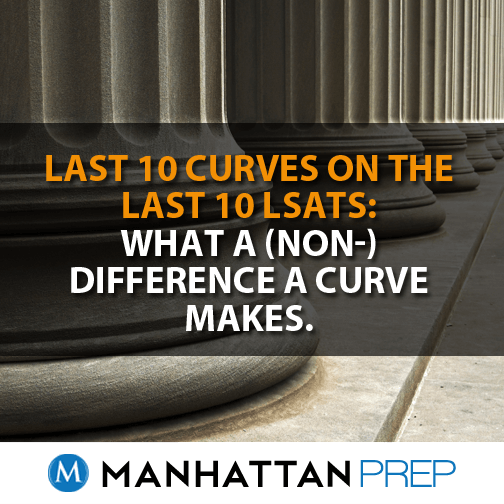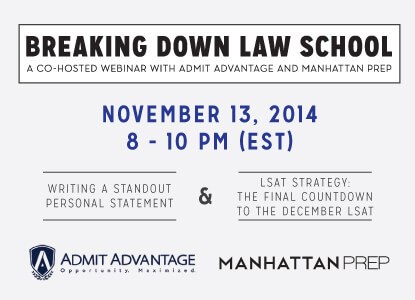#MovieFailMondays: The Martian (or, How Movies Can Teach You About Logical Fallacies and Help You Ace the LSAT)
 Each week, we analyze a movie that illustrates a logical fallacy you’ll find on the LSAT. Who said Netflix can’t help you study?
Each week, we analyze a movie that illustrates a logical fallacy you’ll find on the LSAT. Who said Netflix can’t help you study?
Since we covered Gravity a few weeks ago, we figured we should also cover its sequel, The Martian. Read more
#MovieFailMondays: Scream (or, How Movies Can Teach You About Logical Fallacies and Help You Ace the LSAT)
 Each week, we analyze a movie that illustrates a logical fallacy you’ll find on the LSAT. Who said Netflix can’t help you study?
Each week, we analyze a movie that illustrates a logical fallacy you’ll find on the LSAT. Who said Netflix can’t help you study?
Before Dawson’s Creek, The Following, and Scream 2, Kevin Williamson forged a name for himself with the classic horror film, Scream. Read more
You Derive Me Crazy: Framing Grouping Games
 No matter how good you get at Logic Games, finding those difficult inferences will always be a challenge! In our “You Derive Me Crazy” blog series, we’ll take a look at some of the higher-level inferences that repeat on the LSAT, ensuring that you have all the tools necessary to tackle anything the LSAT throws at you on test day!
No matter how good you get at Logic Games, finding those difficult inferences will always be a challenge! In our “You Derive Me Crazy” blog series, we’ll take a look at some of the higher-level inferences that repeat on the LSAT, ensuring that you have all the tools necessary to tackle anything the LSAT throws at you on test day!
Some of the biggest inferences in Logic Games come in the form of frames — 2–3 skeletons that represent every possible way the game can work out. Here at Manhattan Prep, we have two questions that both need to be answered ‘yes’ before we consider frames: Read more
LSAT Lessons from an Ancient Windsurfer
 If you go on one of those windsurfing web sites where the seasoned pros give advice to newbies, you see a lot of conversations like this:
If you go on one of those windsurfing web sites where the seasoned pros give advice to newbies, you see a lot of conversations like this:
Newbie: “I want to learn how to windsurf. I found someone selling a Ten Cate Sprinter windsurfer for $100. Is this a good board for a beginner?”
Pro: “No! That thing is over 30 years old. It will be too hard to learn anything with a board like that.”
So, there I was a few weeks ago, a total beginner who had never windsurfed before, paddling out into the Chesapeake Bay on an old Ten Cate Sprinter windsurfer. Why? Read more
#MovieFailMondays: Gravity (or, How Movies Can Teach You About Logical Fallacies and Help You Ace the LSAT)

Each week, we analyze a movie that illustrates a logical fallacy you’ll find on the LSAT. Who said Netflix can’t help you study?
2013’s Gravity, also known as Neil Degrasse Tyson’s Film Fact Check, is a science fiction thriller from the mind of Alfonso Cuaròn. While not as scientifically rigorous as his earlier film, Harry Potter and the Prisoner of Azkaban (NDT said, and we quote – “I have never seen a film with such obvious attention to scientific detail.”), Gravity did receive plaudits from the astrophysicist for the many things it got right.
Sadly, logic wasn’t one of them. Read more
#MovieFailMondays: Return of the King
Every week we bring you a new movie that teaches us about a logical fallacy you’ll find on the LSAT. Who says Netflix can’t help you study?

Wait a minute, Matt – don’t tell me there’s a logical fallacy in Return of the King!
Breaking Down Law School Admissions with Manhattan LSAT and Admit Advantage Part II
Join Manhattan LSAT and Admit Advantage for the second installment of Breaking Down Law School Admissions, a free online workshop to help you put together a successful application.
No application is perfect, but you can take steps to mitigate negatives and emphasize positives. During the first half of this webinar, Admit Advantage’s Director of Law Admissions will review how to deal with real-life negatives on your law school application.
Are you also getting ready to sit for the February 2015 LSAT? Veteran Manhattan LSAT instructor and curriculum developer, Matt Sherman, will focus on what kind of prep to do in the last weeks leading up to the test. One of the key points here is to be prepared to adapt to little twists that you didn’t expect. Matt will teach you a hard LSAT game where that’s important. Detailed Q&A to follow.
Breaking Down Law School Part II: Addressing the Negatives in Your Application & Strategy for the February LSAT
Monday, January 12 (7:30 – 9:30 PM EST), Meets ONLINE
Breaking Down Law School Admissions with Manhattan LSAT and Admit Advantage
Are You Prepared for Law School Admissions?
Join Manhattan LSAT and Admit Advantage for a free online workshop to help you put together a successful law school application.
This workshop will discuss how right personal statement can make all the difference in your law school applications. Even applicants with great LSAT scores and a high GPA need top-notch personal statements to set them apart from the pack. Admit Advantage’s Director of Law Admissions will teach you how to make the best impression with your personal statement.
Are you also getting ready to sit for the December 2014 LSAT? Veteran Manhattan LSAT instructor, Brian Birdwell, will focus on what kind of prep to do in the last weeks leading up to the test. One of the key points here is to be prepared to adapt to little twists that you didn’t expect. Brian will teach you a hard LSAT game where that’s important. Detailed Q&A to follow.
Breaking Down Law School: Writing a Standout Personal Statement & Strategy for the December LSAT
Thursday, November 13 (8:00 – 10:00 PM EDT)
Sign Up Here
Last 10 Curves on the Last 10 LSATs: What a (Non-) Difference a Curve Makes
 In case you haven’t heard, getting a 170 on the LSAT (or a 180 for that matter) doesn’t always mean missing the same number of questions. Due to a phenomenon commonly referred to as the LSAT curve, there can be a swing as large as five or so points from test to test when it comes to what constitutes a 170 (just choosing that particular score to illustrate). Take the last 10 released LSATs (excluding February, as it’s not released):
In case you haven’t heard, getting a 170 on the LSAT (or a 180 for that matter) doesn’t always mean missing the same number of questions. Due to a phenomenon commonly referred to as the LSAT curve, there can be a swing as large as five or so points from test to test when it comes to what constitutes a 170 (just choosing that particular score to illustrate). Take the last 10 released LSATs (excluding February, as it’s not released):
|
Test Date |
Could Miss to Get 170 |
|
June 2014 |
-13 |
|
Dec 2013 |
-14 |
|
Oct 2013 |
-12 |
|
June 2013 |
-11 |
|
Dec 2012 |
-12 |
|
Oct 2012 |
-10 |
|
June 2012 |
-10 |
|
Dec 2011 |
-14 |
|
Oct 2011 |
-13 |
|
June 2011 |
-11 |
ISN’T IT OBVIOUS? TAKE DECEMBER, RIGHT? You can miss 14 and get a 170, while June and October tests are often so harsh that you can only miss 10 to get the same score!
Not so fast. Spoiler alert: It doesn’t actually matter; you can’t game your score by choosing in which season you will take the test to strategize around the curve in this way (maybe Nate Silver could, but if you’re Nate Silver, don’t go to law school).
The reason why, in short, is that this curve reflects a response by LSAC to measured difficulty of a particular exam—an easier curve, in other words, actually means more difficult.
So how is difficulty measured? It’s measured based on how many people are getting how many questions right across three years of data. This measurement gives LSAC a “percentile” for each numerical score on a given LSAT—if you score a 170, and that’s in the 97th percentile, it means you performed better than 97 percent of other people taking the test, but not on the same day as you. Technically, you’re “competing” against everyone who took the test in the three years prior.
All of this is to say, when you first learn about the LSAT curve variation, don’t get excited and decide to choose a test date based on it. Choose a test date based on factors like when you are going to apply and what gives you sufficient time to prepare.
Manhattan LSAT
Studying for the LSAT? Manhattan Prep offers a free LSAT practice exam, and free Manhattan LSAT preview classes running all the time near you, or online. Be sure to find us on Facebook and Google+, LinkedIn, and follow us on Twitter!
LSAT READING COMPREHENSION TIPS
 The LSAT Reading Comprehension section is just one of the three multiple-choice sections on the LSAT test. The other two are Analytical Reasoning (logic games) and Logical Reasoning. The Reading Comprehension section contains four 400-600 word passages, each with 5-8 questions, for a total of approximately 27 questions to complete in 35 minutes. Of the 4 passages, one is a “comparative reading” section that is made up of two related shorter passages. Skills tested include drawing inferences, finding the main idea, understanding intricate text and the ability to compare and contrast. Topics covered in the reading passages include the humanities, social sciences, biological and physical sciences, and the law. The purpose of this section is testing your ability to effectively read and analyze complex details as is often required in the practice of law.
The LSAT Reading Comprehension section is just one of the three multiple-choice sections on the LSAT test. The other two are Analytical Reasoning (logic games) and Logical Reasoning. The Reading Comprehension section contains four 400-600 word passages, each with 5-8 questions, for a total of approximately 27 questions to complete in 35 minutes. Of the 4 passages, one is a “comparative reading” section that is made up of two related shorter passages. Skills tested include drawing inferences, finding the main idea, understanding intricate text and the ability to compare and contrast. Topics covered in the reading passages include the humanities, social sciences, biological and physical sciences, and the law. The purpose of this section is testing your ability to effectively read and analyze complex details as is often required in the practice of law.
Just like the other question types on the LSAT, the key to mastering the Reading Comprehension section is to first understand the question types and then to practice, practice, practice. Strategies that will help you effectively read each passage and answer the questions include active reading and note-taking. In order to master Reading Comprehension, you must learn to remain focused as you read 400-600 words of dense, not so interesting text. By actively involving yourself in the reading process, you will be much better equipped to answer the questions that follow. As you read, look for clues in the text that will lead you to understand key concepts from each passage including:
• Main idea
• Explicit details
• Details inferrable from the text
• Contextual clues to the meaning of complex words or phrases
• Passage structure
• Author’s viewpoint
• Contrasting viewpoints
Knowing the types of details that are likely to be needed to answer the questions will help you be a focused, active reader and avoid merely skimming the passages.
The LSAT Reading Comprehension questions test you on your understanding of explicit and implicit details. Getting in the habit of marking up the passage as you read will help you find and remember key parts of the LSAT Reading Comprehension passages. Part of your preparation process should be figuring out the best level and kind of highlighting and notating that will help you most in answering the questions. As you gain experience through practice, you will learn which details are important for answering questions. Techniques like writing notes next a paragraph can help you keep track of key ideas and structural elements.
Always practice using a timer as test takers often find it difficult to read 4 dense passages and answer 27 questions in just 35 minutes. At the end of your 8-12 week LSAT prep period, your goal should be to be able to read a passage and answer 7 questions in about 8-9 minutes.
Studying for the LSAT? Manhattan Prep offers a free LSAT practice exam, and free Manhattan LSAT trial classes running all the time near you, or online. Be sure to find us on Facebook and Google+, LinkedIn, and follow us on Twitter!



